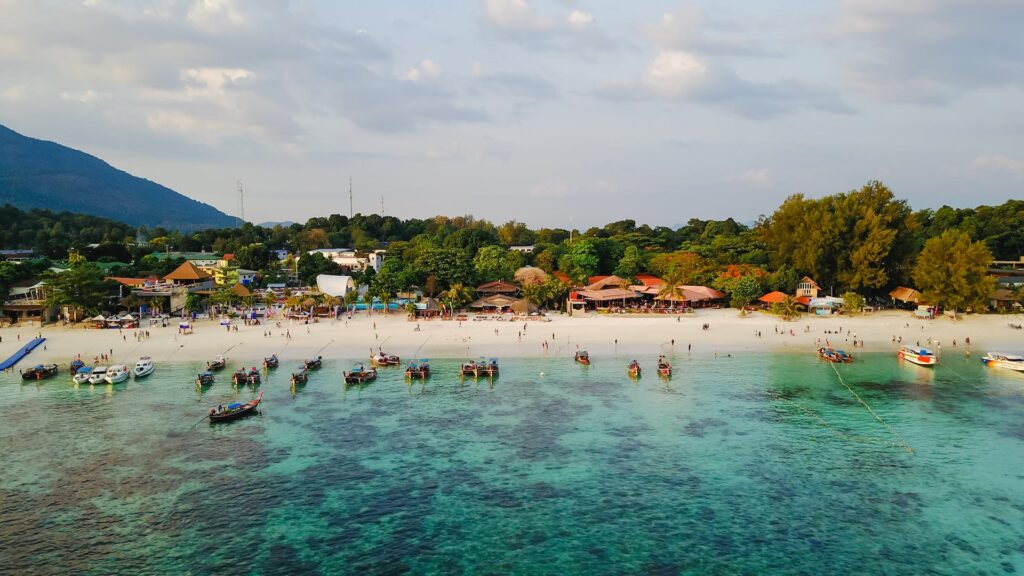After Thailand totally decriminalized cannabis, the country is now facing stricter regulation with a new bill proposing to explicitly ban recreational use. The need for clearer regulation arises from public health concerns, the unregulated growth of the cannabis industry, and the desire to maintain favorable diplomatic relations with neighboring countries that oppose recreational cannabis use.
Thailand and Recreational Cannabis Use: What Direction Is the Country Heading?


We’ve seen it with our own eyes: the decriminalization of cannabis in Thailand has led to a Wild West of cannabis shops, for better or worse. The current regulation indeed sets few limits on the cannabis trade: it’s forbidden for minors and no extracts over 0.2% THC. Otherwise, some city neighborhoods have a cannabis shop every 300 meters.
So, is Thailand actually going to put an end to recreational cannabis use? To play with words, technically, no. The current law has merely decriminalized the use of cannabis and allowed its possession and consumption for medical purposes. Recreational use is therefore still not permitted, even though, in practice, nothing officially distinguishes the different uses. So, what direction is Thailand heading?
For more news like this, along with all the latest in legalization, research, and lifestyle, download our free cannabis news app.
Thailand Likely Headed Towards “Medical” Regulation
The latest news is that an updated version of the Cannabis and Hemp Control Bill will be proposed at the Thai government’s weekly meeting this week. The revised bill maintains a key point that cannabis should only be used for medical purposes but will also clearly state that any recreational use will not be allowed.
The Thai Public Health Minister, Cholnan Srikaew, previously stated that consuming cannabis would likely require a doctor’s authorization – which will, according to testimonials we’ve gathered on the ground, probably be easy to obtain – and that the bill will be very clear on how to use the plant for medical purposes, which parts of the cannabis plant can be used, and the acceptable quantities for possession.
Uncertainty Lies Ahead
The government has yet to specify what will become of the thousands of businesses in Thailand that have emerged in the legal vacuum since cannabis was removed from the controlled narcotics list in 2022.
The Bhumjaithai party, which is also a member of the current government coalition, has previously defended the liberalization of cannabis, but its bill to regulate the plant was not passed last year when the previous government was in place.
The new bill stipulates that all cannabis plantations in Thailand must obtain a permit from the authorities and adopt advanced agricultural practices to ensure the plants are of medical quality. It is unlikely that home plantations, as defended by Bhumjaithai, will continue.
Meanwhile, many dispensaries selling cannabis-based products for medical and recreational purposes are eagerly waiting to see what their future holds. The number of cannabis shops in the country is estimated to be over 7,000.
Why Is Thailand Implementing This Change?
Beyond the surge of businesses and the all-around growth of the local industry, many stakeholders in Thailand have questioned the consequences of the lack of regulation on public safety and health. And it is true that today, products on the market are not tested, come in part from “imports,” and are sold as freely as electronic cigarettes, which are completely banned in Thailand.
The need for regulation to frame the industry is therefore easily understood. Equally important is the image the Kingdom projects to neighboring countries that are still proudly prohibitionist. While they have no problem with medical use, recreational use is still far from their realm of possibilities. Thus, Thailand also aims to smooth its relations with its neighbors with “medical” regulation.
Just as prostitution has been prohibited in Thailand since 1960, cannabis use could well remain “medical.”
—
(Featured image by Tirachard Kumtanom via Pexels)
DISCLAIMER: This article was written by a third-party contributor and does not reflect the opinion of Hemp.im, its management, staff, or its associates. Please review our disclaimer for more information.
This article may include forward-looking statements. These forward-looking statements generally are identified by the words “believe,” “project,” “estimate,” “become,” “plan,” “will,” and similar expressions. These forward-looking statements involve known and unknown risks as well as uncertainties, including those discussed in the following cautionary statements and elsewhere in this article and on this site. Although the company may believe that its expectations are based on reasonable assumptions, the actual results that the company may achieve may differ materially from any forward-looking statements, which reflect the opinions of the management of the company only as of the date hereof. Additionally, please make sure to read these important disclosures.
First published in Newsweed, a third-party contributor translated and adapted the article from the original. In case of discrepancy, the original will prevail.
Although we made reasonable efforts to provide accurate translations, some parts may be incorrect. Hemp.im assumes no responsibility for errors, omissions or ambiguities in the translations provided on this website. Any person or entity relying on translated content does so at their own risk. Hemp.im is not responsible for losses caused by such reliance on the accuracy or reliability of translated information. If you wish to report an error or inaccuracy in the translation, we encourage you to contact us.



Comments are closed for this post.